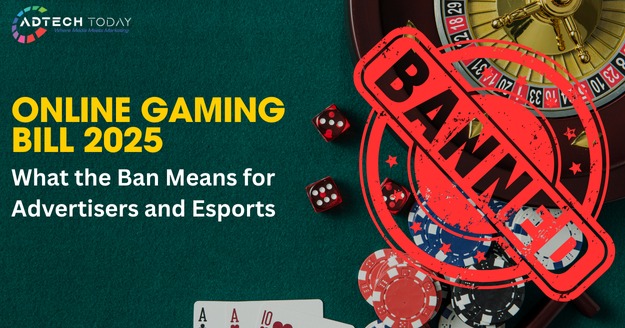
The Online Gaming Bill 2025 is not a roadblock but a turning point. Moving away from real-money gaming ads creates space for a richer ecosystem built on skill, creativity, and community. For brands, it’s a chance to engage audiences authentically through esports, streaming, and digital worlds that are defining culture.
Nimish Raut, Global Head Esports and Special Projects, NODWIN Gaming
The bill will have a substantial impact in the immediate term. Real-money gaming platforms such as Dream11, My11Circle, and others were among the largest contributors to ad spends in marquee properties like the IPL, in some cases accounting for nearly half of the overall advertising pie. Their sudden absence leaves a considerable void for broadcasters and publishers, and the short-term effects are likely to include budget cuts, reduced spends, and even job losses across certain verticals.
At the same time, it is important to see this in context. We have witnessed similar cycles before with categories such as crypto, edtech, and real estate, where one set of advertisers pulled back and another eventually replaced them. The underlying challenge in India has been that partnerships were often built around sheer visibility rather than long-term return on investment, which is why few sponsors have been able to sustain across multiple cycles.
What this bill does create, however, is an opportunity to reframe the ecosystem. Unlike fantasy or chance-based platforms, esports is a skill-driven, competitive space with a young and passionate audience between the ages of 16 and 24. These are individuals who are not chasing quick wins but are building careers and communities within gaming. For brands, this represents a far more credible, authentic, and sustainable environment to engage with audiences.
In the longer term, this reset moment can encourage marketers to move away from a high-decibel, awareness-only approach and instead invest in strategies that deliver depth, trust, and meaningful engagement. By anchoring themselves in esports and adjacent youth cultures, advertisers have the chance to build brand relationships that are not only impactful but also far more enduring in a regulated and transparent ecosystem.
Meher Patel, Founder of Hector
The Online Gaming Bill and restrictions on Real Money Gaming (RMG) advertising are expected to materially reduce ad revenues for broadcasters and digital platforms, particularly during tentpole events like the IPL. RMG operators such as Dream11 and MPL have historically ranked among the top advertisers, often contributing upwards of 20–25% of category spends during peak seasons, outpacing FMCG and e-commerce in certain phases.
Their exit creates a larger revenue gap than the Byju’s fallout, as RMG spend was both high-value (sponsorships, prime slots) and high-volume (sustained digital and TV campaigns). In the near term, this will lead to lower yield for rights holders and broadcasters, with only partial offsets from fintech, e-commerce, and consumer tech. Longer term, media owners will need to recalibrate pricing models and diversify advertiser dependence, as the loss of RMG marks a structural shift in India’s sports advertising ecosystem.
Rohit N Jagasia, Founder & CEO, Revenant Esports.
India has emerged as a global powerhouse in e-sports with an estimated player base of more than 500 million players. This offers a huge untapped opportunity for brands who, till now had stayed away from e-sports due to concerns around legality. Now that the law clearly defines the sector, we would expect marketers exploring this place. However, the onus will be on e-sports brands, who have to now start building trust in a regulated market to find out new advertising streams.
Varun Seth, Managing Partner – Business & Strategy, AdGlobal360
Ashish Srivastava (Co-founder & CEO), Glazer Games
With the ban on real-money gaming ads, brands now need to shift focus towards esports and social gaming, which are growing fast and offer safer, long-term opportunities. At Glazer Games, we see this as a chance for brands to connect with young audiences through tournaments, influencer tie-ups and community activities—building trust and engagement in a regulated, positive gaming ecosystem.
Sumedha Mahajan, Head of Marketing, Operations and Client Growth, Ampverse DMI
The new bill brings clarity for brands, with competitive and regulated formats like esports now becoming the main ground to reach India’s young, digital-first audience. The framework positions esports alongside other recognized sports, giving advertisers confidence that their partnerships are credible and future ready.Marketers can now move beyond short term ad spends and focus on structured engagement such as sponsoring national and collegiate leagues, supporting grassroots tournaments, and collaborating with teams and creators on original content and behind the scenes storytelling. By backing skill development programs and community driven initiatives, brands can foster trust and build authentic connections with young audiences in line with global trends.Regulation has transformed esports into the next big sports marketing arena, offering scale, legitimacy, and a clear pathway for advertisers to create lasting impact.